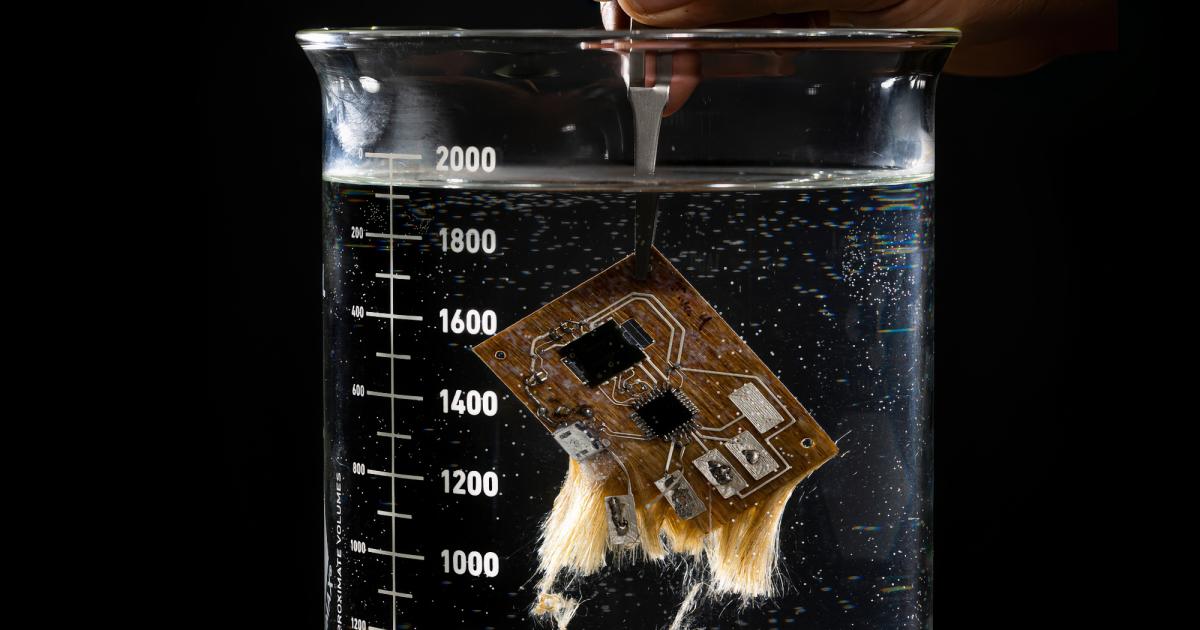German semiconductor manufacturer, Infineon Technologies AG, has recently made an exciting announcement. They have started producing a printed circuit board (PCB) that is capable of dissolving in water. This innovative product, called Soluboard, is sourced from the UK startup, Jiva Materials, and could potentially help the tech industry reduce e-waste and meet climate goals by 2030.
Jiva’s Soluboard is made from natural fibers and a halogen-free polymer, making it much more environmentally friendly compared to traditional PCBs made with fiberglass composites. In fact, a study conducted by the University of Washington College of Engineering and Microsoft Research found that Soluboard can dissolve in hot water in under six minutes. However, it takes longer to break down at room temperature.
Aside from its biodegradability, the Soluboard also simplifies the process of retrieving valuable metals attached to the PCB. Once the board dissolves, the chips and circuit traces can be easily filtered out, as explained by UW assistant professor Vikram Iyer, who worked on a project involving the use of Soluboard.
Jiva Materials’ CEO and co-founder, Jonathan Swanston, highlights the potential of adopting a water-based recycling process. Not only can it result in higher yields in metal recovery, but it can also significantly reduce the carbon footprint. In fact, the Soluboard has a 60% smaller carbon footprint compared to traditional PCBs, saving 10.5 kg of carbon and 620 g of plastic per square meter of PCB.
Infineon has already created three prototypes of circuit boards using the Soluboard technology. Currently, the dissolvable PCBs are only used for demonstration and evaluation purposes, with around 500 units in use. However, the company is actively exploring the possibility of incorporating this material into all of their boards in the future. Stress tests are being conducted to provide guidance on the reuse and recycling of power semiconductors extracted from Soluboards, minimizing waste in future production models.
Denial of responsibility! TechCodex is an automatic aggregator of the all world’s media. In each content, the hyperlink to the primary source is specified. All trademarks belong to their rightful owners, and all materials to their authors. For any complaint, please reach us at – [email protected]. We will take necessary action within 24 hours.
Alex Smith is a writer and editor with over 10 years of experience. He has written extensively on a variety of topics, including technology, business, and personal finance. His work has been published in a number of magazines and newspapers, and he is also the author of two books. Alex is passionate about helping people learn and grow, and he believes that writing is a powerful tool for communication and understanding.


